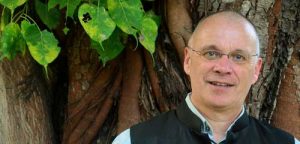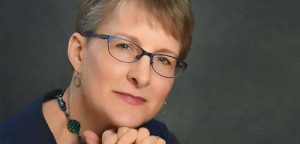
University of British Columbia • June 28-29, 2019
All keynote presentations are public events. The workshop is closed door and there is limited space. Please contact the organizer david.geary@ubc.ca if you are interested in attending.
This event is sponsored by the Social Sciences and Humanities Research Council of Canada, The Robert H. N. Ho Family Foundation Program in Buddhism and Contemporary Society, Community, Culture and Global Studies Department at UBC-Okanagan, Centre for India and South Asia Research, and the Tianzhu Network for the Study of Buddhist Cultures.
Access & Accomodations
Welcome to the beautiful University of British Columbia, located in scenic Vancouver, Canada. At UBC, you are far from the noise and traffic of the city, yet only 20 minutes away by car from downtown.
Friday, June 28, 2019
LOCATION
UBC | C.K. Choi Building
Room 120 | 1855 West Mall
1:00 pm – 3:00 pm
Session 1:
Chair: Rongdao Lai (University of Southern California)
- Introduction
David Geary (University of British Columbia)
Sraman Mukherjee (Ashoka University) - Many Centers, One Heart: Translating and Circulating the Mahābodhi
Arthur McKeown (Carleton College) - Beyond the Guru-Chela Relations: The Dilemmas Faced by Tibetans in India
Dibyesh Anand (Westminster University)
3:30 pm – 4:30 pm
Session 2:
Chair: Sara Shneiderman (University of British Columbia)
- “Alexa, Was Buddha Born in Nepal?” Claiming Buddha’s Homeland on YouTube
Dannah Dennis (NYU Shanghai) - The Last Shangri-la: Positioning Ladakh as a Global Buddhist Pilgrimage Site in India
Elizabeth Williams-Oerberg (University of Copenhagen)
 Professor Deeg is a world renowned specialist in Buddhist history, especially the spread of Buddhism from India to Central Asia and East Asia. He has a special interest in Buddhist narratives and their role and function for the construction of historical identities in Buddhist communities. His latest monographs to be published will be one on Buddhist foundation myths and a German annotated translation of the Sino Christian inscription of Xi an from the 8th century. He is currently working on a new English translation and an extensive commentary of the Xiyu ji, the Records of the Western Regions, by the Chinese monk Xuanzang (7th century).
Professor Deeg is a world renowned specialist in Buddhist history, especially the spread of Buddhism from India to Central Asia and East Asia. He has a special interest in Buddhist narratives and their role and function for the construction of historical identities in Buddhist communities. His latest monographs to be published will be one on Buddhist foundation myths and a German annotated translation of the Sino Christian inscription of Xi an from the 8th century. He is currently working on a new English translation and an extensive commentary of the Xiyu ji, the Records of the Western Regions, by the Chinese monk Xuanzang (7th century).
5:30 – 7:00 PM KEYNOTE ADDRESS
“ ‘Terra Sacra’ Imagined – ‘Terra Sacra’ Visited: Buddhist India in Pre-Modern Sources”
Max Deeg (Cardiff University)
The recognition of Northern India, more specifically the Eastern Gangetic Plain, as the homeland of Buddhism was the result of an ongoing process of investigation and discoveries under the British Rāj. This paper will look into the making of the Buddhist ‘Homeland’ in the 19th century and into the entanglement of the “real” and the “imaginaire” not only in the results of scholarly—textual and archaeological—reconstruction of an emerging historical Buddhist India but will also discuss patterns and modes of pre-modern descriptions of the Buddhist sacred land which had an influence, directly or indirectly, on the perception and the reshaping of the Buddhist “Homeland” by Buddhist agents from the end of the 19th century onwards. The main sources investigated will be the Chinese “pilgrim records” so heavily used (and misused) by scholars and Buddhists in this early colonial period of the rediscovery of the Buddhist ‘Holy Land’.
LOCATION
UBC | xʷθəθiqətəm or Place of Many Trees (formerly, Liu Multipurpose Room)
Liu Institute for Global Issues
6476 NW Marine Drive, Vancouver, BC, Canada, V6T 1Z2
Please note, the entrance to the Place of Many Trees can be accessed from either NW Marine Drive or West Mall
Saturday, June 29, 2019
LOCATION
UBC | C.K. Choi Building
Room 120 | 1855 West Mall
9:00 am – 10:30 am
Session 3:
Chair: Sraman Mukherjee (Ashoka University)
- ‘The Buddha was born, lived and died a Hindu’: Nationalizing Hinduism, Hinduizing Buddhism and the Politics of Religion
Douglas F. Ober (University of British Columbia) - Buddhism in the Playground of the Arya Dharma
Padma D. Maitland (University of California, Berkeley) - Fun for the Whole Family: Envisioning Ecumenical Buddhism in Telangana
Catherine Becker (University of Illinois at Chicago)
11:00 am – 12:00 pm
Session 4:
Chair: Jessica Main (University of British Columbia)
- From “Maga” to “Magadhi” Buddhists: Chittagong Buddhists’ Claims to be the Descendants of medieval Indian Buddhists in Magadha
Mitra Barua (Rice University) - Memory, History, and Casteless Consciousness: Paraiyars as Tamil Buddhists
Gajendran Ayyathurai (University of Göttingen)
2:00 pm – 3:00 pm
Session 5:
Chair: Doug Ober (University of British Columbia)
- From Buddha to “Bengalis”: Burmese ways of Imagining India Inheritances
Alicia Turner (York University) - “In my dream I saw the Buddha of Wingaba”: Indo-Burmese Buddhist Networks, c 1900-1956.
Gitanjali Surendran (Jindal Global Law School)
3:30 pm – 4:30 pm
Session 6:
Chair: David Geary (University of British Columbia)
- At home, or the odd one out? Indonesia, Buddhist-theosophical knowledge networks, heritage sites, and the moral geographies of Greater India.
Marieke Bloembergen, Royal Netherlands Institute of Southeast Asian and Caribbean Studies (KITLV) - The Nalanda Pali Institute and globalizing Buddhism
John Marston (El Colegio de México in Mexico City)
 Anne M. Blackburn is Professor of South Asia Studies and Buddhist Studies in the Department of Asian Studies, and Director of the Cornell South Asia Program. She taught at the University of South Carolina before joining Cornell’s faculty. Blackburn received her BA from Swarthmore College, and MA and PhD degrees from the University of Chicago. Blackburn studies Buddhism in South and Southeast Asia at the intersection of literary studies, intellectual history, and political economy, with a particular interest in Buddhist networks (literary, monastic institutional, political, and trade) linking Sri Lanka and mainland Southeast Asia before and during colonial presence in the region. Her publications include Buddhist Learning and Textual Practice in Eighteenth-Century Lankan Monastic Culture (Princeton, 2001), Locations of Buddhism: Colonialism and Modernity in Sri Lanka (Chicago, 2010), “Buddhist Connections in the Indian Ocean” (JESHO, 2015), and “Buddhist Technologies of Statecraft and Millenial Moments,” (History and Theory, 2017). Research towards her current book project, Making Buddhist Kingdoms Across the Indian Ocean, 1200-1500, was supported by an ACLS Fellowship.
Anne M. Blackburn is Professor of South Asia Studies and Buddhist Studies in the Department of Asian Studies, and Director of the Cornell South Asia Program. She taught at the University of South Carolina before joining Cornell’s faculty. Blackburn received her BA from Swarthmore College, and MA and PhD degrees from the University of Chicago. Blackburn studies Buddhism in South and Southeast Asia at the intersection of literary studies, intellectual history, and political economy, with a particular interest in Buddhist networks (literary, monastic institutional, political, and trade) linking Sri Lanka and mainland Southeast Asia before and during colonial presence in the region. Her publications include Buddhist Learning and Textual Practice in Eighteenth-Century Lankan Monastic Culture (Princeton, 2001), Locations of Buddhism: Colonialism and Modernity in Sri Lanka (Chicago, 2010), “Buddhist Connections in the Indian Ocean” (JESHO, 2015), and “Buddhist Technologies of Statecraft and Millenial Moments,” (History and Theory, 2017). Research towards her current book project, Making Buddhist Kingdoms Across the Indian Ocean, 1200-1500, was supported by an ACLS Fellowship.
5:30 – 7:00 PM KEYNOTE ADDRESS
The Promise of Precedent: Magadha, Laṅkā, and Bago
Anne Blackburn (Cornell University)
The Kalyāṇi Inscriptions composed in 1470s Bago (Burma Delta region) for the court of King Dhammazedi reveal the ways in which imagined geographies of Buddha-sāsana were drawn into premodern local royal and monastic practice outside the Indian subcontinent. We see that Magadha and Laṅkā both figure in the “Buddhist technologies of statecraft” utilized at Bago. How should we understand Dhammazedi’s emphasis on a doubled inheritance, from both Laṅkā and the Indian subcontinent? On behalf of what kinds of Buddhist collectives did the king evoke the authority of Gotama Buddha’s subcontinental arena, as well as ideas of Buddhist kingship?
LOCATION
UBC | xʷθəθiqətəm or Place of Many Trees (formerly, Liu Multipurpose Room)
Liu Institute for Global Issues
6476 NW Marine Drive, Vancouver, BC, Canada, V6T 1Z2
Please note, the entrance to the Place of Many Trees can be accessed from either NW Marine Drive or West Mall